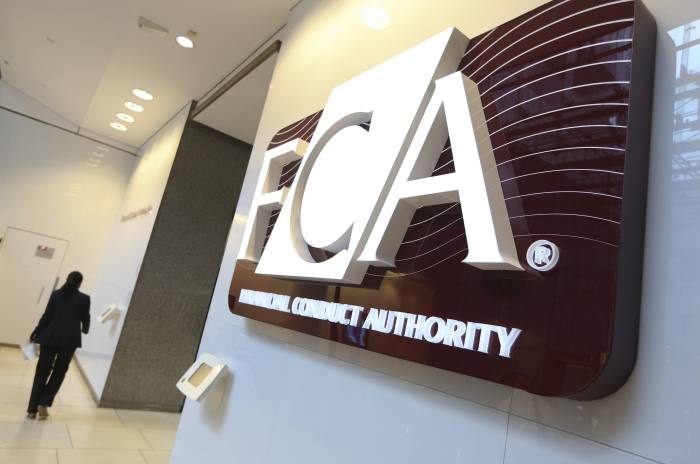The Financial Conduct Authority: What Is It?
Dec 13, 2023 By Triston Martin
People ask, "what is the financial conduct authority"? So, you have come to the right place. Alongside the PRA, the Financial Conduct Authority oversees Britain's financial services sector. Financial services firms like asset managers & impartial financial advisers are not monitored by the PRA. Therefore the FCA is in charge of its prudential regulation. The PRA is in charge of the prudential oversight and scrutiny of banks, building communities, credit unions, insurance companies, and significant investment firms. The FCA possesses "rule-making, investigation, and legal authority" that it employs to govern the financial services sector.
The FCA is also in charge of regulating the ethical behaviour of all financial services companies and fostering healthy competition in relevant sectors. Making sure customers are treated fairly by banks and other financial institutions is part of this. The Financial Conduct Authority's stated mission is to promote "markets & economic institutions that are strong, stable, and robust, with transparent pricing data that customers can readily comprehend."
Key Takeaways:
- The Financial Conduct Authority (FCA) is in charge of ensuring that Britain's financial markets are safe and sound.
- By safeguarding consumers, defending financial markets, and encouraging competition, the Authority works to establish trustworthy marketplaces.
- The FCA is a government agency reporting to both the British Treasury and Parliament.
- Businesses that fall within the FCA's purview are required to pay a fee.
Acquiring Knowledge about the FCA
To achieve its overarching mission, the Financial Conduct Authority (FCA) focuses on three tactical goals: consumer protection, safeguarding and improving the U.K. financial system, and fostering robust competition among suppliers of financial services with the end user in mind. On April 1, 2013, the Financial Services Authority handed over regulatory Authority over banking and insurance to the newly formed Financial Conduct Authority. The FCA's legislative goals were established by the Financial Services & Markets Act 2000 and subsequently revised by the FSA 2012. After the economic meltdown of 2008-2009, the United Kingdom enacted the Act of 2012 to reform financial services regulation and make sure the financial industry better manages and limits risks.
Authorities of the Financial Conduct Authority
The FCA has broad Authority to carry out its mission, including the ability to make rules and conduct investigations and legal actions. Given that it is self-sufficient and receives no money from the government, the FCA also possesses the Authority to increase fees. Therefore, the FCA collects fees from businesses that are permitted to perform activities governed by the FCA and some other agencies, such as approved investment exchanges.
What Is The FCA's Purpose?

The Financial Services Act mandated the establishment of the Financial Conduct Authority. Consumer safety, increased competition, and maintaining market integrity are all priorities for the FCA. The Financial Conduct Authority's main goal is to oversee the wholesale & retail financial industries. As part of this mission, it has the Authority to undertake investigations into wrongdoing, oversee the promotion of financial products, and set minimum requirements. Since 2014, the Financial Conduct Authority (FCA) has been in charge of policing the consumer credit sector, and it has the power to outright prohibit certain products or business practices. Companies of the following kinds are subject to FCA regulation:
- Banks
- Free-lance economic experts
- Mutual societies
There are more than 58,000 enterprises in the United Kingdom within the FCA's purview. The PRA, which oversees the financial services industry for the sake of security and risk management, regulates many of these businesses as well.
Finances for The FCA
Financial Conduct Authority (FCA) fees are paid by the companies it oversees and is collected by the FCA. Many of the resources the FCA needs to perform its statutory tasks come from the periodic fees levied on companies. The FCA charges these fees depending on a variety of variables, including the scope, nature, and size of a company's regulated operations.
The FCA's Position on Negative Media Screening
As a component of the "Understand Your Client" procedure, screening for negative publicity may help reduce the possibility of being utilized to launder money from illicit activity. While the FCA acknowledges that screening for negative press may assist in assessing the risk posed by a third party to a financial institution, they do not provide guidance on exactly how screening should indeed be conducted. After evaluating the potential consequences, financial institutions are often given the freedom to make such choices on their own.
Artificial Intelligence and the FCA

Apparently, trust is the scarcest resource in the modern risk analysis & compliance technology business. However, unlike FCA, there is currently no established governance norm for minimizing AI-related risks. It has not set guidelines for the use of A.I. or machine computing in the context of financial compliance. When an AI-driven choice has a legal consequence, one thing is certain: we should need interpretability and human-machine collaboration, a development philosophy that promotes humans & A.I. working jointly but with the humans having ultimate accountability.

Susan Kelly Oct 20, 2023
What Exactly Is A Life Estate?
68088

Triston Martin Feb 12, 2024
Best Stocks for a Starter Portfolio in 2023
4007

Triston Martin Jan 15, 2024
What Are Stock Options?
57958

Susan Kelly May 13, 2024
Navigating the Financial Landscape: Understanding Nasdaq, Dow Jones, and Beyond
20373

Susan Kelly Feb 27, 2024
Buying A Car With Outstanding Finance: What Happens?
25034

Susan Kelly May 13, 2024
Fortifying Portfolios: A Comprehensive Guide to Investing in Defense ETFs
69162

Triston Martin Dec 13, 2023
The Financial Conduct Authority: What Is It?
90496

Triston Martin Dec 31, 2023
Discuss Comprehensively: How to Coupon?
73231